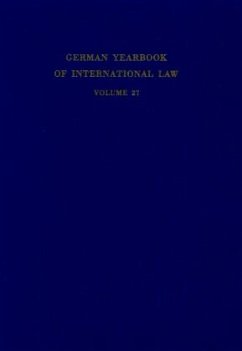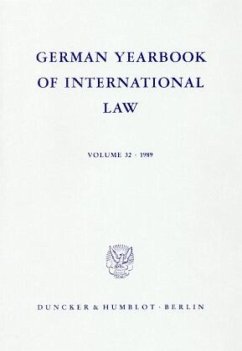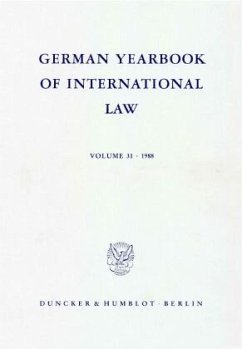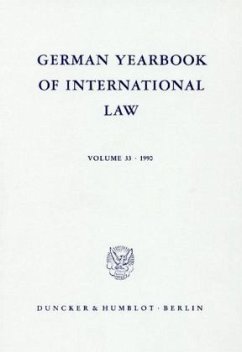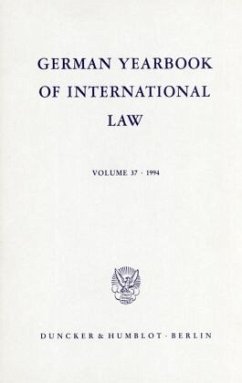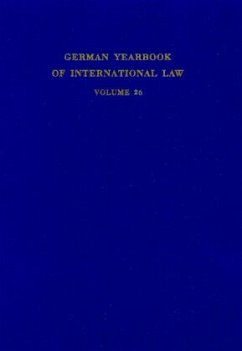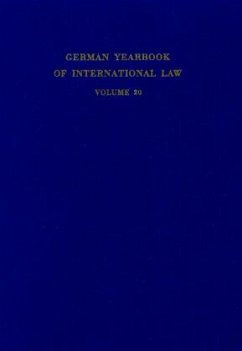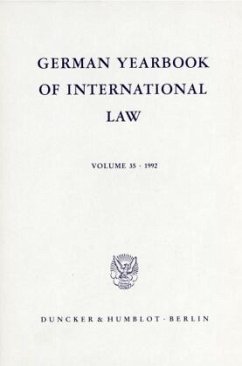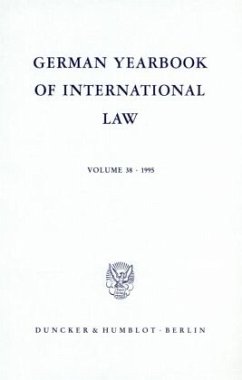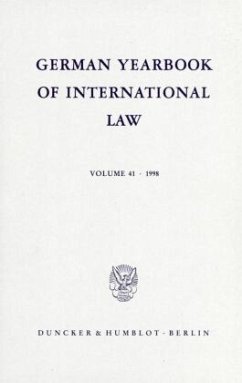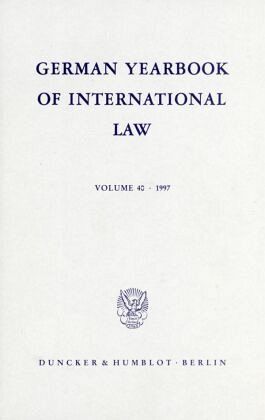
German Yearbook of International Law - Jahrbuch für Internationales Recht.
Vol. 40 (1997).
Herausgegeben: Delbrück, Jost; Hofmann, Rainer; Zimmermann, Andreas
Versandkostenfrei!
Versandfertig in 6-10 Tagen
179,90 €
inkl. MwSt.

PAYBACK Punkte
0 °P sammeln!
The German Yearbook of International Law was founded in 1948 by Rudolph Laun and Hermann von Mangoldt as the "Jahrbuch für Internationales Recht". The Yearbook is currently edited by the Walther-Schücking-Institute for International Law at the University of Kiel, and it continues to follow in its tradition of offering learned contributions to the development of international law. Although German scholars were once the primary contributors to the Yearbook, today authors from throughout the world are welcomed to publish their English language, and occasionally French language, articles. This t...
The German Yearbook of International Law was founded in 1948 by Rudolph Laun and Hermann von Mangoldt as the "Jahrbuch für Internationales Recht". The Yearbook is currently edited by the Walther-Schücking-Institute for International Law at the University of Kiel, and it continues to follow in its tradition of offering learned contributions to the development of international law. Although German scholars were once the primary contributors to the Yearbook, today authors from throughout the world are welcomed to publish their English language, and occasionally French language, articles. This trend has helped the Yearbook further open itself to new readers.It is the goal of the Yearbook's editors to create a free forum for the discussion of international law that is available to the largest possible international audience. To this end, the Yearbook has remained progressive by discussing timely topics of interest and concern to international legal academics and practitioners. Its editors have also modified the Yearbook's approach to the field in recent years by offering a focus section in each volume that considers issues of particular importance to the further development of international law. The Yearbook has also been successful in informing the international law community with regard to research done in German academic institutions and in presenting international viewpoints on various topics to the German community.In addition, the Yearbook publishes annual reports on the work of international organizations that make significant contributions to international law. These reports are, for the most part, published in German and review the current activities of bodies such as the International Court of Justice and the European Court of Human Rights. Contributors to the Yearbook include the full spectrum of individuals involved in the discussion of international law, including academics, practitioners, and students of the subject. The editors, in compiling each volume of the Yearbook, recognize the importance of allowing for discussion of the full range of opinions on international legal issues and especially encourage the expression of new ideas and legal theories that encourage further growth in the field of international law.
Dieser Artikel kann nur an eine deutsche Lieferadresse ausgeliefert werden.




